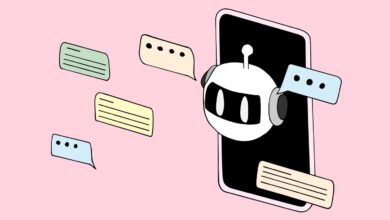Apple Dazzles with Generative AI Capabilities at Worldwide Developers Conference

Apple’s unveiling of the iOS 18 update during its Worldwide Developers Conference has marked a significant leap forward, showcasing the tech behemoth’s new generative AI features. Ben Bajarin, Creative Strategies CEO and Principal Analyst, shared his views on the implications of these advancements. According to his analysis, Apple is set to transform everyday consumer interactions with AI by weaving this technology into the fabric of daily iPhone use, enhancing both utility and user experience.
The integration of generative AI into Apple’s ecosystem signals an era where average users will interact with artificial intelligence, likely without even realizing it, as part of their routine. Bajarin highlighted that despite suggestions of Apple being late to the AI game, the timing of their roll-out is strategic. The focus is not on being first to market but on refining the utility and privacy components to deliver a compelling product to the mainstream audience.
Apple’s approach prioritizes personal context and privacy, using what Bajarin termed a “semantic engine” to create deeply personalized experiences. These engaging features, such as upgraded emojis and intuitive productivity tools, are designed to be functional while maintaining user privacy.
The conversation reflected that while generative AI might not have been in high demand amongst smartphone users, Apple’s exciting innovations like customizable emojis and predictive personal assistants could shift consumer attitudes. Bajarin suggested that these new features, blended seamlessly into the user’s technological experience, might indeed persuade smartphone users of the value of generative AI in their everyday lives.
Most Important Questions and Answers:
1. What is generative AI?
Generative AI refers to the type of artificial intelligence that can generate new content based on learned data patterns. It can create text, images, and a wide array of other content types through technologies like machine learning and neural networks.
2. How is Apple ensuring privacy with the integration of generative AI?
Apple has historically emphasized user privacy in its product development. The incorporation of generative AI into the iOS ecosystem is designed to maintain this standard, likely using on-device processing to minimize data sharing and ensuring that personal content is not transmitted to the cloud whenever possible.
3. What could be the potential challenges or controversies associated with Apple’s deployment of generative AI?
A key challenge is balancing sophisticated AI capabilities with user privacy. Additionally, there may be concerns about bias in AI-generated content, the environmental impact of training large AI models, and the potential displacement of human jobs by AI systems.
Advantages and Disadvantages:
Advantages:
– Enhanced user engagement: By creating more personalized experiences, users may find greater enjoyment and productivity in their use of Apple devices.
– Privacy: If managed correctly, the application of generative AI with a focus on privacy could set a new standard for AI integration in personal devices.
– Innovation: The introduction of these features can stimulate the market and competition, leading to further technological advancements.
Disadvantages:
– Privacy concerns: Despite Apple’s efforts, the deployment of AI could still potentially lead to new privacy issues if not properly contained.
– Increased complexity: Advanced AI features might over-complicate the user experience for some, potentially leading to a steeper learning curve or confusion.
– Reliability: AI is not flawless and can produce errors. Reliance on generative AI may sometimes lead to unforeseen mistakes or inappropriate content generation.
For further information on Apple’s endeavors, you can visit the main Apple website here: Apple.



